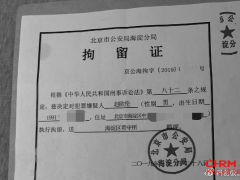Mainland employers more generous, Hong Kong’s returnees less satisfied with local jobs: Hays finds in Overseas Returnees Report, first of its kind in six years
Mainland China’s overseas returnees, or those who had education or work experience abroad, are more likely to get decent income, compared to their counterparts from most other Asian countries and regions, international recruitment expert Hays finds.
The 2019 Hays Asia Overseas Returnees Report, published on July 31, points out mainland Chinese businesses have shown relatively high levels of willingness to offer overseas returnees a premium salary compared to local candidates.
61 percent of them are willing to do so, above the Asian average of 57 percent, and is only 2 percent behind Malaysian businesses.
Yet better income is not the key reason why talents are returning home.
Being close to family is of “paramount importance” to professionals who want to return for their families as Asia is ageing rapidly, according to the report.
The survey finds 71 percent of mainland China’s overseas returnees cite ‘being closer to family’ as a large motivator for moving back to their home country, way above the 41 percent of 2013, when Hays published a similar report.
It also finds 73 percent of Hong Kong’s returnees move back for the same reason.
On the contrary, 58 percent of overseas returnees across the whole of Asia responded that living closer to their family as the most compelling reason to move back.
Simon Lance, Managing Director of Hays Greater China, says this year’s findings reflect the current trends of China’s social and economic transformation.
“Willingness to offer overseas returnees a premium salary shows mainland Chinese businesses’ open attitude, which is what the country needs as it is further opening up its economy,” Simon says.
Hays surveyed 2,075 respondents from five operating markets in this year’s report: mainland China, Hong Kong, Japan, Malaysia and Singapore, and uncovered the realities that face both employers and returning skilled professionals.
The report provides both sides’ perspective and helps identify the gaps and missed opportunities for businesses to be better able to secure adept, returning professionals.
Explaining why “a clear majority” of Chinese overseas returnees move back to stay close to family, the report says it is “in line with the deep sense of filial piety inculcated in Chinese individuals since they were young”.
Staying away for a prolonged period may be perceived as not fulfilling filial duties, and it is not uncommon for Chinese parents to expect their children to make sacrifices by way of a pay cut or leaving their partners abroad to be closer to them, the report says.
Asia is expected to be home to over 60% of the total population aged 65 years or older worldwide by the 2030s, Business Insider, of Singapore, reported in 2017.
Asian overseas returnees are often driven by familial reasons to repatriate, because Asian children are usually expected to take care of their aging parents rather than putting them old age homes, the report adds. China’s number of overseas returnees totalled 3.132 million as of the end of 2017, according to statistics of the Ministry of Human Resources and Social Security. In 2017 alone, 480,900 returned to China, while 608,400 left home to study abroad.
“Thanks to the reform and open-up policy, China opened its economy to the world, boosting Chinese businesses’ need for returned talents. They will need more overseas returnees as the country’s economy keeps growing and it further opens the economy. More talents, meanwhile, will move back,” Simon says.
‘Wave of overseas returning’ in biopharmaceutics for career development
The survey also finds not all people return for family reasons, while 53 percent of mainland China’s overseas returnees say they moved back for opportunities to progress and develop their career, especially in those key sectors where China sees severe talent shortages, like the biopharmaceutical industry.
The talent shortage has become a key hurdle for China’s biopharmaceutical industry, according to industry website www.zyzhan.com. The piece also argues mainland China has seen a wave of overseas talent returning to this industry, a promising one amid improvement in technology and environment, as well as the introduction of new policies.
Moving back to China was in order to pursue bigger opportunities for career development, says a researcher who moved back to China just months ago from the United States to join Beijing-based Global Health Drug Discovery Institute (GHDDI).
She gave up position with a globally known pharmaceutical company where she had spent decades of her career.
GHDDI, jointly founded by Tsinghua University, the Bill & Melinda Gates Foundation, and the Beijing Municipal Government, is a transformative drug discovery and translational platform with advanced biomedical research and development capabilities.
The Wall Street Journal has also noticed, in a recent story, that a rising number of pharmaceutical talents are moving back to China, in a move which will help the country research and develop new, valuable drugs.
Moving back also a compromise
Yet for many overseas returnees, moving back home means not just new challenges, but also compromises such as lower income.
Compared to developed countries, China still offers relatively lower pay in similar, or the same, positions, despite mainland businesses offering a premium salary to overseas returnees.
Overseas returnees did not have an optimistic outlook of their salaries for their first job back in the mainland, the report finds. Close to half (47 percent) were expecting a salary equivalent to what they were earning overseas, while one third (33 percent) were willing or did take a dip in salary.
In other words, only 20 percent of mainland China’s returnees are expecting a pay rise at home. Yet, 31 percent of them in 2013 said they would move back to work at home only when there is a pay rise.
Differences in corporate culture may also disturb mainland China’s overseas returnees.
Overseas returnees should do research about their home countries’ corporate culture, says Nina Qu, VP, HR, Corporate Communication & Sales Training, Lundbeck China.
“My suggestion is that they be more patient and give themselves time to understand local working environments,” Nina adds.
Hong Kong’s returned talents less satisfied with local jobs
Employers in Hong Kong are the least willing to pay a premium salary for overseas returnees who possess the skills needed to drive business growth, with three in five saying so, the report finds. Across Asia, two in five (43 percent) say they will not offer packages different to those given to local talent.
Yet Amongst those who have secured a job back home in Hong Kong, satisfaction rates with their current positions are not high by any means. only 48 percent, the lowest among all surveyed Asian countries and regions, say they are ‘satisfied’ or ‘very satisfied’.
This may be in part due to the view that the working conditions in Hong Kong pale in comparison to what overseas returnees have been exposed to, according to an article by the South China Morning Post. Hong Kong’s working world is known for its long hours and high-stress environments on top of the relatively uncompetitive benefits provided by employers such as the number of leave days.
Yet businesses across Hong Kong have been “extremely open” about hiring overseas returnees, the report says. Almost nine in ten employers (88 percent) say they are willing to hire a returnee in the next 12 months. 94 percent of them would recommend the employment of overseas returnees.
When asked about the level of seniority at which they would consider hiring or have hired, a large majority (76 percent) say ‘mid-level’, while 43 percent say ‘senior/ management level’.
On the contrary, most mainland Chinese employers (65 percent) are willing to hire junior or entry-level candidates, the survey finds.
Nina says mainland employers “are more inclined to hire entry-level returnees for their tendency to be eager to learn and trainable”.
“Across the board, there are generally more entry level positions open across organisations in Mainland China, which provides more opportunities for fresh graduates returning from overseas”, she adds.
 手机版|
手机版|

 二维码|
二维码|






